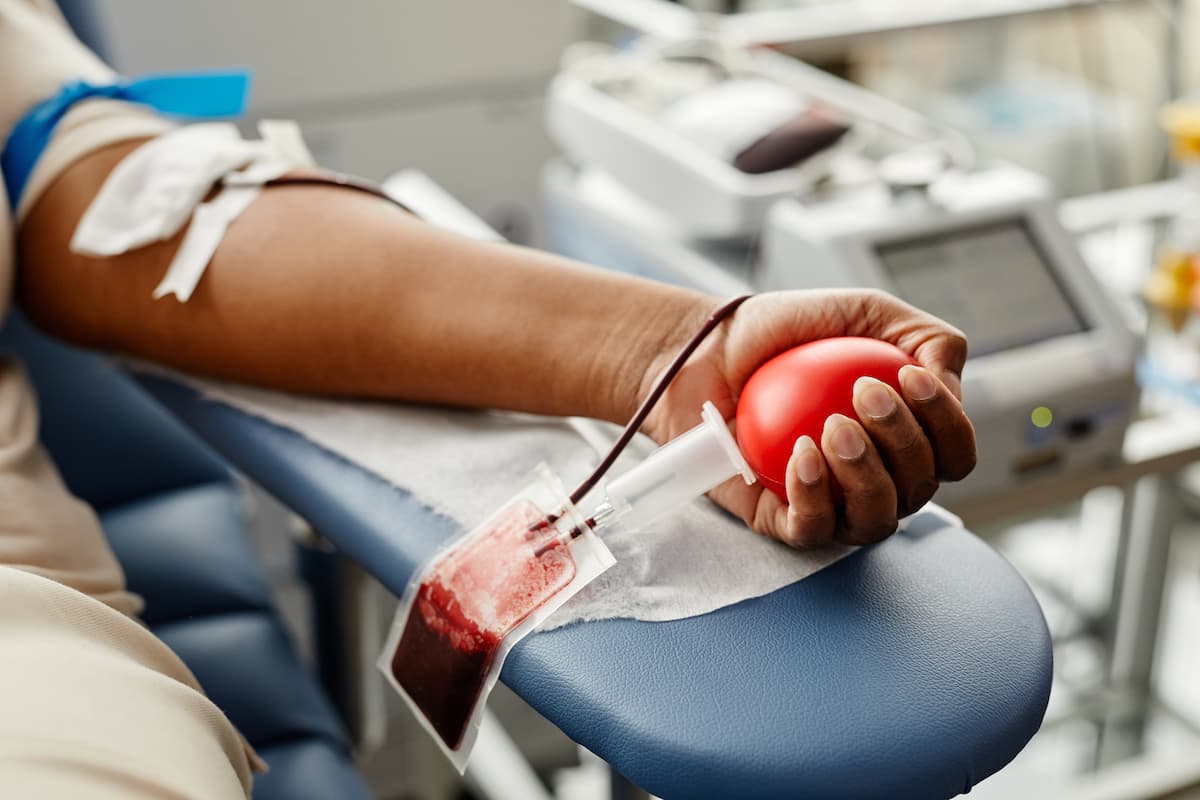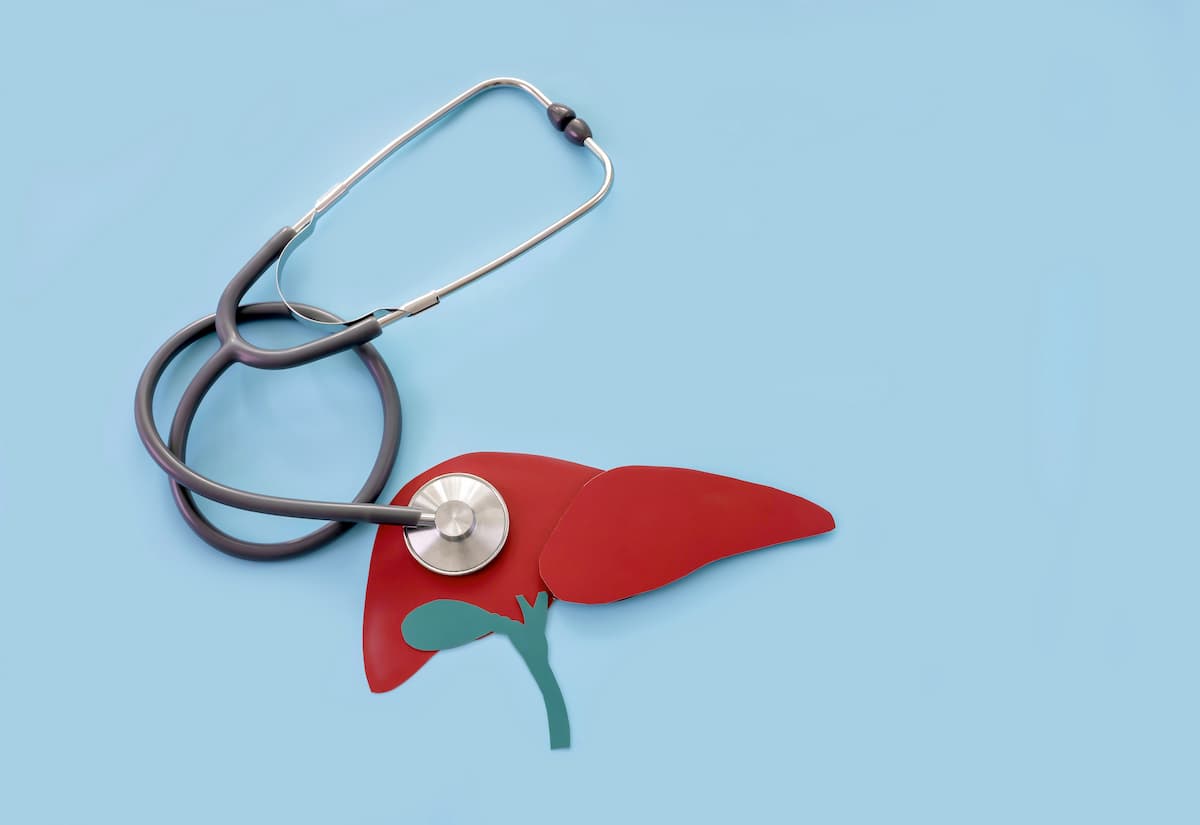Blood tests: how to prepare, when and where to perform, how to interpret the results?
Blood tests can detect many conditions, monitor treatment and also assess the patient's general condition.


Learn more about our editorial process
.

Learn more about our editorial process
.

Learn more about our editorial process
.

Learn more about our editorial process
.
Why you can trust us
Articles on Natu.Care are written based on scientific research, data from government websites and other reliable sources. The texts are written in cooperation with doctors, nutritionists and other health and beauty experts. Articles are reviewed before publication and during significant updates.
.Learn more about our editorial process
.Information about advertisements
Content on Natu.Care may contain links to products from the sale of which we may receive a commission. When creating content, we adhere to high editorial standards and take care to be objective about the products discussed. The presence of affiliate links is not dictated by our partners, and we select the products we review ourselves completely independently.
.Learn more about our terms and Conditions
.Blood tests allow us to check a patient's general condition, monitor treatment and also diagnose diseases. Most of us can perform them at a nearby clinic. Blood tests are not expensive, time-consuming or cumbersome.
Once a year. That's how often we celebrate a birthday or Christmas. So often we start the school year. But once a year we should be doing something else - having a preventive blood test. A few minutes spent on this diagnostic can help reveal a dangerous disease and increase the chance of a cure.
From this article you will learn:
- Why and when to have blood tests .
- How to prepare for blood tests .
- What are the basic blood tests .
- How long are blood tests valid .
- How to interpret blood tests .
If you notice some of the worrying symptoms described in this article contact a specialist at Tomorrow Medical or go for a preventive blood test - you can sign up for one at uPatient.
See also:
- Thyroid testing
- Cortisol testing
- Cervical cancer
- Liver .
- Fatty (oily) liver
- Hepatic tests .
- Saturation
- Pulse oximeter
- How to take care of your mental health during a period of depressed mood
- How to take care of your health?
- How to become a blood donor?
What are blood tests and what do they consist of?
Blood tests are one of the most commonly performed laboratory tests. They make it possible to examineand, among other things, the concentration of chemicals, levels of proteins and cells present in the blood. Through blood tests, it is possible to make an initial determination of the patient's condition, as well as to detect numerous diseases.
Why are blood tests performed?
.Blood tests include dozens of tests that can be performed for various reasons. However, they are most commonly performed for several reasonsand.
- .
- Checking your general health. Basic blood tests such as a blood count allow you to check your general health. .
- Diagnosing a disease. If the patient's symptoms or the results of previous tests make it possible to suspect a disease, selected blood tests can confirm or exclude it.
- Monitoring treatment. If a patient is taking medication or undertaking other treatment, blood tests can be helpful in monitoring their condition.
When should blood tests be performed?
.Basic, preventive blood tests, such as a blood count, lipidogram or liver tests, should be performed once a year. However, if there is something wrong with your body - don't wait and go for tests immediately.
Blood tests are a good idea.
Recommendationsand for basic blood tests:
- weakness, .
- fatigue, .
- weakened immune system (recurrent infections), .
- easily appearing bruises,
- slower healing,
- slower healing.
- slower wound healing, .
- decreased mood,
- decreased mood.
- sleeping problems,
- disorders of concentration,
- disorders of concentration,
- disorders of mood.
- disorders of concentration,
- disorders of concentration.
- pain in muscles, joints, bones, .
Seniors also need to remember about blood tests. Older people are much more prone to diseases of, for example, the circulatory or skeletal systems, and their immunity is much lower than that of the young. This is why seniors should have regular blood tests. They make it possible to treat diseases at an early stage, which, if untreated, can quickly develop into dangerous conditions.
Please note!
Remember that all unusual symptoms that cause discomfort should be consulted with your doctor. Make an appointment and get your health checked.
Where to get blood tests done?
.Basic blood tests, such as a blood count, can be done at most GP surgeries. For more advanced tests, on the other hand, you should go to a laboratory with a doctor's referral.
You can also do blood tests privately with the help of services such as uPatient. Once you have selected a specific package of tests, choose your location and a mobile medical specialist will come to take your blood.
Provided you have a blood test, you can choose to have your blood drawn.
How long is the waiting time for blood tests?
.The waiting time for blood tests depends on the facility you choose and the set of tests. If you opt for a preventive test package from uPatient, the test - if there are free appointments - can even take place the same day. You will receive the results electronically two days later.
The situation is very similar for blood tests performed on the National Health Service. In most cases, they can be done on the day you receive your referral. However, if the waiting volume is too high, it will be necessary to choose a different date.
The cost of a blood test is also very high.
How much do blood tests cost?
.Blood tests can be done for free with a referral from your doctor. However, if you want to perform them on your own, you will have to pay. The cost depends on the parameters you want to test. In most cases, it is most beneficial to opt for a package of several tests offered by the laboratory.
.On the uPacjenta website, you will find various sets of tests, e.g. preventive tests (cost: PLN 200). Several tests are included in this package, such as the determination of the concentration of magnesium, iron or morphology.
If a test detects, that you have a magnesium deficiency, it is worth considering supplementation.
In this article you will find the best preparations with this mineral: Best magnesium - ranking
If your GP consistently refuses to refer you for tests - and you know, that your request is justified - go to another specialist.
 .
.
Witold Tomaszewskidoctor of medical sciences
.How to prepare for a blood test?
.For any blood test, it is important to prepare properly. It is best to ask your healthcare professional for precise instructions. What do the most common recommendations includeand?
- .
- Refrain from eating. For the vast majority of blood tests you should come in fasting. Sometimes you will not be able to eat or drink for only a few hours before the test. In other cases, you will need to abstain from food already the day before the test itself.
- Exhibit selected foods. Some blood tests do not require complete abstinence from food, but you may need to avoid specific foods (e.g. meat or herbal tea) before the blood draw.
- Do not drink alcohol. Tests, such as liver tests, require us to be abstinent for several days prior to blood collection. .
- Avoid selected activities. Some blood tests require the avoidance of certain behaviours, such as sexual activity or strenuous exercise.
- Some blood tests require the avoidance of certain behaviours, such as sexual activity or strenuous exercise.
- Do not take medication or supplements. If you are taking any medication or supplements, consult your doctor. You may need to stop taking them a few days before the test. .
- Avoid smoking tobacco products. Some blood tests cannot be carried out if you have smoked cigarettes in the last few hours or so. .
Before some blood tests you will be asked to drink a bottle of water. This will help to keep more blood in your veins - this can be crucial to getting accurate results. In contrast, for other tests you should drink less fluids. Always ask your healthcare professional how much water you should consume before the test.
Being fasted before the test means eating a light meal a maximum of 8-12 hours before the test. You can drink water, but only plain, clean water. Do not add sugar or lemon to it..
 .
.
Ilona Krzak Master of Pharmacy
Caution!
.Not following the instructions of your healthcare professional may affect your test results. If you have not followed the instructions - always be honest and inform the specialist at the laboratory and the doctor interpreting the test results.
How long to wait for a blood test after taking an antibiotic?
.While taking an antibiotic, you cannot undergo blood tests. On the other hand, you should wait from a few days to even a few weeks after stopping antibiotic therapy. If you have finished taking an antibiotic and are wondering whether you can go for blood tests - contact your doctor.
Only a specialist can give you the green light. Acting on your own can result in unreliable test results.
Can blood tests be performed during your period?
.Yes, blood tests can be performed during menstruation (period). Although this may affect your test results, if you tell your doctor that you are having your period, the specialist will take this into account when interpreting them.
Natu.Care Collagen Premium 5000 mg, mango & passion fruit

- Collagen content: 5000 mg marine collagen hydrolysate
- Additional active ingredients: vitamin C, low molecular weight hyaluronic acid (and L-theanine and coenzyme Q10 in cocoa flavoured collagen or vitamin A and vitamin E in mango–passion fruit flavoured collagen)
- Form: powder sachets
- Dose: 1 sachet per day
- Sufficient for: 30 days
Product description
Fish collagen from the Natu.Care brand in a dose of 5000 mg, based on certified ingredients of the best quality. Regular supplementation will positively influence the appearance of the skinóry, hairów and nails – they will be rebuilt and strengthened from the inside.
In addition to collagen, which is valuable for health and beauty, it also offers other active ingredients that help to maintain a youthful complexion, shiny hair and strong nails.
The formula contains a sufficient portion of the active ingredient to positively affect joints, the musculoskeletal system and immunity.
Natu.Care Premium Collagen is available in two flavours – Cacao Bloom and Rise&Shine. Both formulas are based on the following active ingredients: marine collagen hydrolysate, wild roseóbud extract and hyaluronic acid.
Additionally, Cacao Bloom contains natural L-theanine, coenzyme Q10 and defatted Dutch cacao. Rise&Shine instead contains vitamin E and vitamin A.
These are the best collagens in the world.
These best fish collagens on the market also rós taste – Cacao Bloom is a treat for chocolate lovers. Rise&Shine will appeal to those whoólike the refreshing taste of mangoófruit and passion fruit.
Pros and cons
Pros:
- Vitamin C supports the body's collagen production, enhancing its effectiveness.
- An effective dose of hyaluronic acid, which additionally supports skin hydration and joint health.
- Fish collagen absorbs 50% better. Additionally, the manufacturer specifies the fish species it is sourced from (Atlantic cod).
- The composition has been tested by the independent and accredited J.S. Hamilton laboratory.
- MSC (Marine Stewardship Council) quality certification, which confirms that the collagen source supports sustainable fishing practices.
Cons:
- None.
Additional information
Natu.Care's fish collagen receives praise for its delicious taste. You won't find the fishy aftertaste that often comes through in other collagens. Plus, you have two tasty flavors to choose from: cocoa and mango-passionfruit.
Active ingredients like coenzyme Q10, hyaluronic acid, and natural L-theanine provide anti-inflammatory and antioxidant benefits while slowing down aging processes.
User review
Super, after about 6 weeks of use, the skin on my face became noticeably firmer. Wonderful taste.
Ania ZalewskaNatu.Care customer
Natu.Care Premium collagen 10 000 mg, mango-maracuja

- Collagen content: 10,000 mg marine collagen hydrolysate
- Additional active ingredients: vitamin C, low molecular weight hyaluronic acid (and L-theanine and coenzyme Q10 in cocoa flavoured collagen or vitamin A and vitamin E in mango–passion fruit flavoured collagen)
- Form: powder sachets
- Dose: 1 sachet per day
- Sufficient for: 30 days
Product description
One of the strongest collagens on the market, whichós provides as much as 10,000 mg in a daily serving. This allows the formula to effectively support the condition of the skin, hair and nails.
With this supplement, you will support your beauty, which will allow you to visually stop the ageing process and feel a second youth!
Natu.Care Collagen Premium 10 000 mg comes in two flavours – cherry and mango-maracuja. Both formulas have the same product backbone – collagen, hyaluronic acid and vitamin C.
In the cherry version you additionally find glucosamine, chondroitin and Indian frankincense resin extract. Mango-maracuja, on the other hand, contains vitamin E and vitamin A.
Pros and cons
Pros:
- Tested collagen formula – SeaGarden, whose effects have been confirmed in clinical studies.
- Effective dose of hyaluronic acid, additionally moisturizing the skin and positively impacting joint health.
- Vitamin C supports the body’s natural collagen production.
- The composition has been tested by the independent and accredited J.S. Hamilton laboratory.
- The product has an MSC (Marine Stewardship Council) quality certification – the collagen source supports sustainable fishing practices.
Cons:
- None.
Additional information
Users praise Natu.Care Collagen Premium for the easy dissolvability of the powder.
User review
I noticed a significant improvement in my skin texture after a few weeks of taking collagen regularly. My complexion is now as soft as velvet!
Natu.Care Collagen Premium 10000 mg, cherry

- Collagen content: 10,000 mg of hydrolyzed bovine collagen
- Additional active ingredients: vitamin C, low molecular weight hyaluronic acid, glucosamine, chondroitin, extract of Indian frankincense resin (boswellia serrata)
- Form: powder sachets for drinking
- Serving: 1 sachet per day
- Lasts for: 30 days
Product description
One of the strongest collagens on the market, providing as much as 10,000 mg per daily serving. This product can effectively support the condition of joints, skin, hair, and nails.
With this supplement, you will support your skeletal and joint system as well as your beauty, helping you visually halt the aging process and feel rejuvenated!
Pros and cons
Pros:
- The daily portion of collagen is very large – as much as 10,000 mg.
- Proven collagen formula – COLLinstant, whose effectiveness has been confirmed in clinical studies.
- Effective dose of hyaluronic acid, which additionally moisturizes the skin and positively affects joint health.
- Vitamin C supports the body's natural collagen production.
- Glucosamine is a fundamental building block of compounds found in joint cartilage and a component of collagen that gives elasticity to connective tissue in tendons.
- Chondroitin is a natural component found in the human body, mainly in cartilage. This large molecule (mucopolysaccharide) has the ability to absorb water, which helps maintain the elasticity and resilience of cartilage.
- Frankincense resin extract supports blood circulation and joint mobility and reduces their stiffness. It may help alleviate inflammatory conditions.
- The composition has been tested by the independent and accredited J.S. Hamilton laboratory.
Cons:
- None.
Additional information
Users praise Natu.Care Collagen Premium for the easy dissolving of the powder.
Premium Sodium Butyrate
Product description
Premium Sodium Butyrate is a natural support for your digestive system. With a high dose of butyric acid (940 mg), it supports the regeneration of the intestinal mucosa, improving gut health and function, and aids in the absorption of nutrients. By taking care of your intestines, you're taking care of the health of your entire body.
Studies involving people suffering from irritable bowel syndrome confirm that sodium butyrate is ideal for supporting issues related to bacterial flora imbalances (for example, after antibiotic therapy), constipation and diarrhea, inflammation of the intestinal mucosa, or a diet low in fiber.
Premium Sodium Butyrate capsules are made using the innovative DRcaps® technology. This guarantees that the active ingredients in the product are protected from the destructive effects of stomach acids and digestive enzymes. As a result, we can be sure that the beneficial ingredients are released in the small intestine and are fully absorbed by our body.
Premium Sodium Butyrate from Natu Care is 100% tested, and its composition contains only the highest quality raw materials.
Pros and cons
Pros:
- Supports digestive system function
- Helpful for various gastrointestinal conditions, including IBS
- High dose of butyric acid in each capsule
- Eco-friendly, clean, and tested composition
- Free from added sugar, gluten, GMOs, and lactose
- Innovative capsule technology - DRcaps
Cons:
- None
Additional Information
Take 3 capsules daily at any time of the day, preferably with a meal. Swallow the capsules whole with water.
Premium Sodium Butyrate is intended for adults.
The product should be used under medical supervision.
User review
I've been using the product for 2 weeks. My stomach feels lighter, and my digestion has improved. I recommend it.
Natu.Care Premium Magnesium + Vitamin B6

- Magnesium content per day: 305 mg
- Additional active ingredients: Vitamin B6 (2.1 mg)
- Form: capsules
- Serving size: 3 capsules per day
- Sufficient for: 30 days
Product description
The Premium Magnesium + Vitamin B6 dietary supplement is a comprehensive product that combines three organic forms of magnesium (citrate, malate, and diglycinate) and vitamin B6 in highly absorbable forms.
Magnesium is an essential mineral without which our bodies cannot function properly. It supports the immune, nervous, and muscular systems, maintains electrolyte balance, and is involved in cell division and the regulation of mental functions.
Research shows that magnesium supplementation is even more effective when accompanied by vitamin B6, which is included in our product. Vitamin B6 is responsible for the proper functioning of the nervous and immune systems, as well as the proper functioning of the heart.
If you want to safely get rid of feelings of fatigue, concentration problems, hair loss, muscle cramps, trembling, or irritability, reach for Premium Magnesium from Natu.Care, tested by the independent, certified laboratory J.S. Hamilton Poland.
Pros and cons
Pros
- Supports the proper functioning of the nervous and immune systems.
- Reduces feelings of fatigue and tiredness.
- Maintains proper psychological functions.
- The purity of the ingredients (free from anti-caking agents, artificial fillers, and additives such as titanium dioxide, microcrystalline cellulose, talc, magnesium stearate, and silicon dioxide) has been confirmed by laboratory tests.
- High absorption of ingredients.
- Soft capsules that are easy to swallow.
- Suitable for vegetarians and vegans.
Cons
- None.
Additional information
Take with a meal, 3 capsules per day.
The capsules should be taken with at least 250 ml of water.
If you have trouble sleeping, it is advisable to take 1 capsule in the morning and 2 capsules in the evening, no later than 4 hours before bedtime.
Avoid combining with products high in calcium (milk, yogurt, cheese), as this may negatively affect magnesium absorption.
Pregnant and breastfeeding women should consult a doctor before starting supplementation.
User review
I’m very impressed with the speed of delivery. The product itself is of high quality and absorbs well. After two weeks of supplementation, I’ve noticed a significant improvement in muscle recovery, especially during periods of intense training. I highly recommend it!
Product description
The dietary supplement contains omega-3ᵀᴳ, or omega-3 acids in the form of trójglyceridesów. Scientific studies suggest that this form of fatty acidsós up to 2 times better absorbed than the estersós present in many dietary supplements on the market. This means that you are assured of their effectiveness and of supplying yourself with valuable omega acids.
Fatty acids omega-3 are derived from wild anchovy oil. It is a rich source of healthy fats that are essential for the health of the cardiovascular, immune and nervous systems, as well as the proper function of vision, joints muscles.
Scientific research suggests that wild anchovies are a good source of healthy fats.
Scientific research also suggests that an adequate intake of omega-3 fatty acidsós protects against and supports the treatment of depression and anxiety disorders. In addition, omega-3s influence the hydration and appearance of the skinóry and support healthy sleep.
.
The formula contains a total of 750 mg of EPA+DHA acidsós, which is three times higher than the recommended minimum of 250 mg for the Polish population. Omega-3 TG Premium has studies indicating that its TOTOX is 9, which is a very good result.
Supplementation of omega-3 fatty acidsóis recommended for anyone who does not eat 1–2 portions (approximately 300 g) of oily fish per week. Children during growth, seniors, physically active people, vegans and vegetarians, as well as patients undergoing cardiovascular treatment and prevention of heart disease also have an increased need.
Pros and cons
The dietary supplement contains omega-3ᵀᴳ, or omega-3 acids in the form of trójglyceridesów. Scientific studies suggest that this form of fatty acidsós up to 2 times better absorbed than the estersós present in many dietary supplements on the market. This means that you are assured of their effectiveness and of supplying yourself with valuable omega acids.
Fatty acids omega-3 are derived from wild anchovy oil. It is a rich source of healthy fats that are essential for the health of the cardiovascular, immune and nervous systems, as well as the proper function of vision, joints muscles.
Scientific research suggests that wild anchovies are a good source of healthy fats.
Scientific research also suggests that an adequate intake of omega-3 fatty acidsós protects against and supports the treatment of depression and anxiety disorders. In addition, omega-3s influence the hydration and appearance of the skinóry and support healthy sleep.
.
The formula contains a total of 750 mg of EPA+DHA acidsós, which is three times higher than the recommended minimum of 250 mg for the Polish population. Omega-3 TG Premium has studies indicating that its TOTOX is 9, which is a very good result.
Supplementation of omega-3 fatty acidsóis recommended for anyone who does not eat 1–2 portions (approximately 300 g) of oily fish per week. Children during growth, seniors, physically active people, vegans and vegetarians, as well as patients undergoing cardiovascular treatment and prevention of heart disease also have an increased need.
Additional information
The dietary supplement contains omega-3ᵀᴳ, or omega-3 acids in the form of trójglyceridesów. Scientific studies suggest that this form of fatty acidsós up to 2 times better absorbed than the estersós present in many dietary supplements on the market. This means that you are assured of their effectiveness and of supplying yourself with valuable omega acids.
Fatty acids omega-3 are derived from wild anchovy oil. It is a rich source of healthy fats that are essential for the health of the cardiovascular, immune and nervous systems, as well as the proper function of vision, joints muscles.
Scientific research suggests that wild anchovies are a good source of healthy fats.
Scientific research also suggests that an adequate intake of omega-3 fatty acidsós protects against and supports the treatment of depression and anxiety disorders. In addition, omega-3s influence the hydration and appearance of the skinóry and support healthy sleep.
.
The formula contains a total of 750 mg of EPA+DHA acidsós, which is three times higher than the recommended minimum of 250 mg for the Polish population. Omega-3 TG Premium has studies indicating that its TOTOX is 9, which is a very good result.
Supplementation of omega-3 fatty acidsóis recommended for anyone who does not eat 1–2 portions (approximately 300 g) of oily fish per week. Children during growth, seniors, physically active people, vegans and vegetarians, as well as patients undergoing cardiovascular treatment and prevention of heart disease also have an increased need.
Expert opinion
The dietary supplement contains omega-3ᵀᴳ, or omega-3 acids in the form of trójglyceridesów. Scientific studies suggest that this form of fatty acidsós up to 2 times better absorbed than the estersós present in many dietary supplements on the market. This means that you are assured of their effectiveness and of supplying yourself with valuable omega acids.
Fatty acids omega-3 are derived from wild anchovy oil. It is a rich source of healthy fats that are essential for the health of the cardiovascular, immune and nervous systems, as well as the proper function of vision, joints muscles.
Scientific research suggests that wild anchovies are a good source of healthy fats.
Scientific research also suggests that an adequate intake of omega-3 fatty acidsós protects against and supports the treatment of depression and anxiety disorders. In addition, omega-3s influence the hydration and appearance of the skinóry and support healthy sleep.
.
The formula contains a total of 750 mg of EPA+DHA acidsós, which is three times higher than the recommended minimum of 250 mg for the Polish population. Omega-3 TG Premium has studies indicating that its TOTOX is 9, which is a very good result.
Supplementation of omega-3 fatty acidsóis recommended for anyone who does not eat 1–2 portions (approximately 300 g) of oily fish per week. Children during growth, seniors, physically active people, vegans and vegetarians, as well as patients undergoing cardiovascular treatment and prevention of heart disease also have an increased need.
Natu.Care Vitamin D 2000 UI
Product description
Vitamin D plays a crucial role in our health and well-being. It affects calcium and phosphate metabolism, which translates to healthy bones and teeth. It also helps regulate the immune system, and studies indicate its influence on the functioning of the nervous system.
Vitamin D, although called a “vitamin,” is actually a prohormone that our body produces on its own, primarily under the influence of sunlight. Unfortunately, our modern lifestyle contributes to deficiencies of this essential vitamin. Working in enclosed office buildings, using (necessary!) SPF creams, and covering the body with clothing all make it very difficult, if not impossible, to obtain adequate levels of vitamin D from sunlight. This is why appropriate, year-round supplementation is so crucial.
Vitamin D from Natu.Care is a well-tested vitamin D3 suspended in safflower oil, a plant known for its numerous health benefits. The convenient, easy-to-swallow capsule will make supplementation a part of your daily, healthy routine, improving your overall well-being.
Pros and cons
Pros:
- Ensures proper functioning of the immune system
- Supports the maintenance of healthy bones and teeth
- Maintains proper heart, kidney, and muscle function
- Tested by an independent, certified laboratory
- Convenient and easy-to-swallow capsule
- Clean composition - free from added sugar, gluten, GMOs, lactose, and without preservatives or colorants
Cons:
- None.
Additional Information
Pregnant women and breastfeeding mothers should consult a doctor before using the product. This dietary supplement is intended for a healthy adult population up to the age of 75.
Collagen Booster - Glow Stories

- Active ingredients: bamboo shoot extract, Quatrefolic®, L-Methionine, L-cysteine, vitamin E, vitamin A, niacin (vitamin B3), vitamin B6, vitamin B2 (riboflavin), biotin, zinc, copper
- .
- Form: capsules
- .
- Dose: 1 capsule per day
- .
- Sufficient for: 60 days
- .
Product description
A dietary supplement containing vitamins, minerals and plant extracts thatósupport the skinóhand, hair and nails. The product is especially distinguished by the form of folate – it is Quatrefolic, whichós absorbed very well and is natural.
In addition to valuable vitamins and minerals, such as vitamin A, E, B3, B2 and biotin, the formula contains bamboo shoot extract, whichóry further enhances your beauty.
Pros and cons
A dietary supplement containing vitamins, minerals and plant extracts thatósupport the skinóhand, hair and nails. The product is especially distinguished by the form of folate – it is Quatrefolic, whichós absorbed very well and is natural.
In addition to valuable vitamins and minerals, such as vitamin A, E, B3, B2 and biotin, the formula contains bamboo shoot extract, whichóry further enhances your beauty.
Additional information
A dietary supplement containing vitamins, minerals and plant extracts thatósupport the skinóhand, hair and nails. The product is especially distinguished by the form of folate – it is Quatrefolic, whichós absorbed very well and is natural.
In addition to valuable vitamins and minerals, such as vitamin A, E, B3, B2 and biotin, the formula contains bamboo shoot extract, whichóry further enhances your beauty.
What and how can blood test results be affected?
.On the internet you can find information about how particular factors interfere with test results. However, there is not a lot of reliable data on what and how specific behaviours affect them, so I asked Ilona Krzak, MSc pharmacy.
What factors interfere with test results and what failure to follow the doctor's advice can result in?
.Stress
.- An increase in fasting glucose .
- Increase in total cholesterol, LDL cholesterol, triglycerides, and decrease in HDL cholesterol.
- Increase in insulin.
- Increase in insulin. .
- Increased sodium ion levels.
- Increased sodium ion levels.
- Increase in cortisol and prolactin. .
- Decrease in testosterone. .
- Decrease in immunity - fewer antibodies. This manifests itself in test results with a decrease in lymphocytes, eosinophils and monocytes.
- Decrease in immunity.
- Decrease in progesterone. .
Sex
.- Increase in prolactin. .
- Increase in testosterone.
- Increase in testosterone.
- Rise in PSA - a tumor marker in prostatic (prostate) hyperplasia.
- Rise in PSA - a tumor marker in prostatic (prostate) hyperplasia.
Alcohol
.- Increase in hepatic tests ALAT and ASPAT.
- Increase in liver tests.
- increase in bilirubin, triglycerides, oestradiol, adrenaline, aldosterone, uric acid and cortisol.
Intensive exercise
.Increases:
- Total protein, .
- D-dimers, .
- adrenaline, .
- cortisol, .
- glucagon, .
- ACTH, .
- prolactin, .
Falls:
.- glucose, .
- cholesterol, .
- triglycerides, .
- blood clotting time, .
- testosterone, .
- insulin, .
Note!
.Make sure to avoid stress, exercise sexual restraint, abstain from alcohol, and avoid strenuous exercise before the blood test.
What are the contraindications to having blood tests done?
.The most common contraindication to blood tests is infection. During illness, most of them should not be performed. Other contraindications relate to specific blood tests, so it is important to talk to your doctor. It is the specialist who decides whether selected blood tests can be performed.
Basic blood tests and result standards
.Blood tests include dozens of different parameters. However, there are a few basic ones that are worth testing at least once a year.
Blood morphology
.Blood morphology is one of the most basic blood tests to assess the patient's overall health. With it, it is possible to detect infections or leukaemia, for example. What does a complete blood count test look like and what are the reference values (norms)and?
- red blood cells - men: 4.35-5.65 million/mcl, women: 3.92-5.13 million/mcl.
- .
- white blood cells - adults: 3400-9600/mcl. .
- hemoglobin - men: 13.2-16.6 g/dl, women: 11.6-15 g/dl. .
- haemoglobin - men: 38.3-48.6%, women: 35.5-44.9%. .
- platelets - men: 135,000-317,000/mcl, women 157,000-371,000.
Blood morphology tested privately costs around £10-15.
.Note!
.Remember that reference values (norms) can vary from laboratory to laboratory, so it is up to your doctor to interpret your test results.
Lipidogram
.Lipidogram includes total cholesterol, LDL ('bad' cholesterol), HDL ('good' cholesterol) and triglyceridesand. This blood test can detect health problems such as coronary stenosis, assess the risk of myocardial infarction or stroke. What are the reference values for each parameterand?
- Total cholesterol: less than 200.
- Total cholesterol: less than 200.
- HDL cholesterol: 60 or more.
- Total cholesterol: less than 200.
- LDL cholesterol: less than 100. .
- Triglyceridesand: less than 150 mg/dl. .
The price of a lipidogram test is around £20-40
.Glycaemia
.Glycaemia determines the concentration of glucose (blood sugar). Most commonly this test is used to diagnose conditions such as type 2 diabetesand. You must attend for it on an empty stomach (we must be without a meal for at least 12 hours). What might the results indicate?
- 99 or less mg/dl: sugar concentration correct.
- 100 or less mg/dl: sugar concentration correct.
- 100-125 mg/dl: possible pre-diabetic state.
- 100 to 125 mg/dl: possible pre-diabetic state.
- 126 or more mg/dl: possible diabetes. .
A blood glucose test costs around £20-30
.How to prepare for a blood glucose test?
.- .
- Be fasting. Any meal eaten immediately before the test may affect the result.
- Be fasted.
- Be well rested, after sleeping through the night. Stress, nerves, or a sleepless night can interfere with your blood glucose result.
- Be rested, after a good night's sleep.
- Avoid exertion. Go to the test with a leisurely walk, without much effort.
- Do not drink.
- Do not drink alcohol. You may not consume alcoholic beverages for a few days before the test. .
In addition to these recommendations, you should also take into account the medications you are taking. They too can interfere with the result.
The blood glucose meter is not designed to diagnose diabetes. It is merely an instrument with which we can monitor blood glucose indications. Glucometer readings and laboratory results can differ by up to 10-15%..
 .
.
Ilona Krzak Master of Pharmacy
Did you know?
.In addition to basic blood glucose testing, there is also a distinction between so-called adherent testing and OGTT. In the case of the former, testing is performed at home - either before or after a meal (the patient does not need to be fasting). The oral glucose load test (OGTT), on the other hand, requires abstinence from stimulants and exercise three days before the test. Once it has started, the patient's blood will be drawn, then he or she will need to drink a glucose solution so that the blood will be drawn again after a specified time.
TSH concentration test
.The TSH concentration test can detect abnormalities in the thyroidand. Too high a TSH concentration will indicate hypothyroidism of this organ. Conversely, too low a concentration may indicate hyperthyroidism. The reference value for a TSH concentration test is usually :
- from 0.4 to 4.0 mIU/l. The price, on the other hand, is around £25-45. .
CRP test
.The CRP test measures the concentration of C-reactive proteinand. It can detect, among other things:
.- viral and bacterial infections, .
- intestinal disorders, .
- autoimmune diseases, .
- pulmonary diseases, .
Most often, low CRP levels do not herald serious health problems. It is the elevation of this parameter that can indicate dangerous inflammatory conditions. The reference value for this test isand:
- less than 10 mg/l. .
Remember that normal results can vary, so it is up to your doctor to interpret your result.
The price of a CRP test is around £15-45.
.OB test
.OB (passer's reaction) is a blood test to detect inflammation in the body. It can be helpful in diagnosing conditions such as giant cell arteritis or rheumatism. The reference value isand:
- 0-15 mm/h for men, .
- 0-20 mm/h for women, .
Obc tests cost about £10-15.
.Liver tests
.Hepatic tests (liver function tests hepatic function tests) are a blood test to show abnormalities in the function of this organ. What parameters do they include and what are the reference valuesand?
- ALT: 4-36 IU/l .
- AST: 5-30 IU/l .
- ALP: 30-120 IU/l .
- GGTP: 6-50 IU/l .
- Bilirubin: 2-17 µmol/l .
Abnormal liver test results should be consulted with a specialist. The most common treatments for this organ include a suitable diet, giving up alcohol, and taking a selection of hepatic tablets. However, it is up to your doctor to decide what steps to take. If you are concerned about your health - make an appointment.
Hepatic tests cost 20-50 zloty.
.The results of liver tests can be affected by taking a number of medications such as paracetamol, other NSAIDs (non-steroidal anti-inflammatory drugs), some antibiotics, isotretinoin, immunosuppressants, sulfonamides, ketoconazole..
 .
.
Ilona Krzak Master of Pharmacy
One of the disorders of the liver is liver steatosis.
.You can learn more about it in this article: Fatty (oily) liver - what it is, causes, symptoms.
Coagulogram
.Coagulogram is a test to assess the blood's ability to clotand. Clotting too easily can lead to a heart attack or stroke. Impaired coagulation, on the other hand, can result in a so-called haemorrhagic diathesis. The reference value for coagulogram results is :
- 0.8-1.1 INR. .
The price of the test is approximately £30-300 (depending on the assays chosen).
How long are blood tests valid for?
.The validity period of a blood test depends on the specific parameters. The most common is several months. A complete morphology is valid for 2 months. After this time - if necessary - you should undergo another test.
How to interpret blood test results?
.Along with the test results, we receive reference values for each parameter. If our result is within the given range, the test has come out correctly. If not, we may have cause for concern. Remember that test results are influenced by many factors, so it is up to the doctor to interpret them.
See also:
- Sedation tablets [ranking + expert advice] .
- Prescription-free sedation tablets [ranking + expert advice] .
Summary
.Remember:
.- Blood tests are laboratory tests that allow us to examine the chemicals, proteins and cells present in the blood.
- Blood tests are the most common indications for blood tests.
- Some indications for blood tests are fatigue, bone pain, and a weakened immune system.
- Some indications for blood tests are fatigue, bone pain, and a weakened immune system.
- Basic blood tests can be done in the clinic, while for more advanced tests you should go to a laboratory. .
- For most blood tests, you should prepare properly. .
- Basic blood tests include a blood count, lipidogram, blood glucose, TSH levels, ESR, CRP, liver tests and coagulogram. .
- Blood tests are valid for several months. .
FAQ
.How to collect faeces for latent blood testing
.Collecting stool for a latent blood test may seem complicated. However, in reality it is a few simple steps:
- Before passing faeces, empty your urinary bladder.
- Before passing faeces, empty your urinary bladder.
- Drain into a pre-prepared vessel.
- Follow the steps below.
- Using an applicator, take samples from 2-3 sites.
- Take a sample from the bladder.
- Mix the collected samples with the liquid in the tube. .
Remember to take care when opening the test tube and placing the stool to ensure that no liquid escapes.
What are the blood tests for the liver?
.The most basic, preventive blood test for the liver is the so-called liver test. It includes the testing of five parameters: ALAT, ASPAT, GGTP, ALP and bilirubin. With liver tests, it is possible to determine liver function and confirm or rule out various conditions, such as a fatty liver.
If there is something wrong with your liver, it is worth considering tablets or liver supplements.
Can HPV be detected from a blood test?
Yes, a diagnosis of HPV (human papilloma virus) infection can be made from a blood test. Moreover, it is even possible to determine - if a person is infected - which type of virus has infected them.
Cervical cancer, the main cause of which is HPV infection, is a very serious condition. However, if detected early enough, it can be curable in up to 99% of cases. Prevention and frequent blood tests are therefore very important.
.
Can a GP refuse to refer for blood tests?
Yes, the GP will only make a referral for blood tests if he/she thinks it is necessary. If the specialist feels that the blood tests are unnecessary - they can refuse the referral. However, if you know you are due a referral and the specialist continually refuses it - go to another doctor.
What blood tests to do while taking the contraceptive pill?
.While taking the contraceptive pill, it is a good idea to have the aforementioned basic blood tests regularly: blood count, lipidogram, ESR, CRP, liver tests, coagulogram and TSH levels. It is equally important to examine hormones such as oestradiol, prolactin or progesterone.
cortisol testing and thyroid testing are important preventive measures that, like blood tests, help to avoid many conditions.
Can a pregnancy be detected from a blood test?
Yes, blood tests can detect pregnancy 6-8 days after ovulation. One of these is a quantitative blood test. Pregnancy can also be detected by the so-called qualitative hCG determination. This test has a very high efficiency (better than a pregnancy test). Remember, however, that only a gynaecologist can definitively confirm a pregnancy.
What tests are due from the National Health Service once a year?
.The doctor decides whether to refer you for a National Health Fund examination. If the specialist deems it necessary, you can be referred for the same tests several times a year. Otherwise - if the doctor says it is not necessary - you will not be entitled to any National Health Service tests.
Resources
.See all
.Blood Testing. (2019, December 6). Harvard Health. https://www.health.harvard.edu/diseases-and-conditions/blood-testing-a-to-z
Blood Tests-Blood Tests | NHLBI, NIH. (2022, March 24). https://www.nhlbi.nih.gov/health/blood-tests
Can triglycerides affect my heart health? (n.d.). Mayo Clinic. Retrieved March 15, 2023, from https://www.mayoclinic.org/diseases-conditions/high-blood-cholesterol/in-depth/triglycerides/art-20048186
C-Reactive Protein (CRP) Test: MedlinePlus Medical Test. (n.d.). Retrieved March 15, 2023, from https://medlineplus.gov/lab-tests/c-reactive-protein-crp-test/
Definition of blood test-NCI Dictionary of Cancer Terms-NCI (nciglobal,ncienterprise). (2011, February 2). [NciAppModulePage]. https://www.cancer.gov/publications/dictionaries/cancer-terms/def/blood-test
Erythrocyte Sedimentation Rate-Health Encyclopedia-University of Rochester Medical Center. (n.d.). Retrieved March 15, 2023, from https://www.urmc.rochester.edu/encyclopedia/content.aspx?contenttypeid=167&contentid=erythrocyte_sedimentation_rate
How to Prepare for a Lab Test: MedlinePlus Medical Test. (n.d.). Retrieved March 15, 2023, from https://medlineplus.gov/lab-tests/how-to-prepare-for-a-lab-test/
Lala, V., Zubair, M., & Minter, D. A. (2022). Liver Function Tests. In StatPearls. StatPearls Publishing. http://www.ncbi.nlm.nih.gov/books/NBK482489/
.Prothrombin Time (PT) Test: Purpose & Results Evaluation. (n.d.). Cleveland Clinic. Retrieved March 15, 2023, from https://my.clevelandclinic.org/health/diagnostics/17691-prothrombin-time-pt-test
What You Need to Know About Blood Testing: MedlinePlus Medical Test. (n.d.). Retrieved 15 March 2023, from https://medlineplus.gov/lab-tests/what-you-need-to-know-about-blood-testing/
Editorials
Meet the team



Liver tests are a test to assess the function of this organ. Find out when to perform them.

What cortisol testing is, why it is important and what symptoms should prompt you to do it.

The thyroid doesn't hurt and the symptoms of disease can be easily ignored. Take care of prevention and get your thyroid tested.



